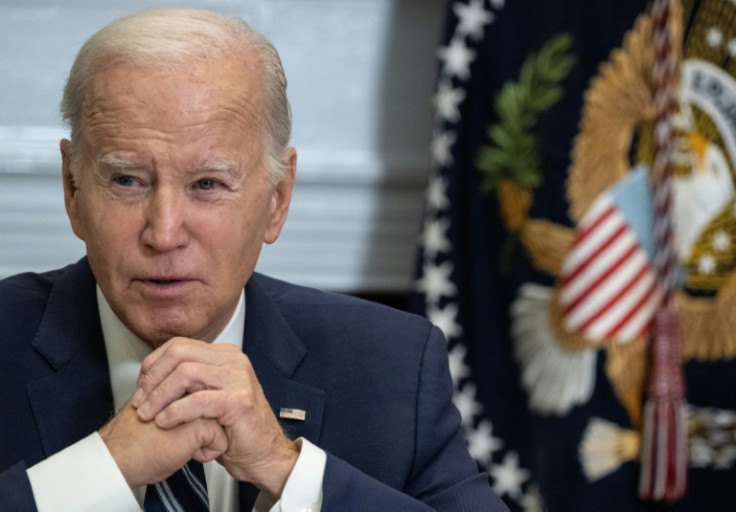Biden Administration Releases Policy To Seize Drug Patents Based On Price

The Biden administration has released a plan for federal officials to use "march-in rights," a policy through which the government could seize the patents of drugs made using federal funds, if drug costs climb too high. Under the framework released Thursday, officials can consider the price of a drug when deciding whether to seize a patent.
Bloomberg reports that administration officials have kept mum about which drug patents they're looking at, but the White House did say in a statement that more competition can push prices down.
"The administration believes taxpayer-funded medications should be reasonably available and affordable," the statement said.
Pharmaceutical representatives warned that this shift will cause government research to go ignored, never actually applied to potential new drugs.
In the U.S., 20 of the top brand-name drugs cost two to four times more than the same drugs in Australia, Canada and France, a 2021 Government Accountability Office (GAO) report found. For U.S. consumers without prescription drug coverage, drug costs could be as much as eight times higher.
The GAO also noted that other studies have shown the U.S. spends more on prescription drugs both as a share of its economy and per person than its peers.
"The actual differences between U.S. prices and those of other countries are likely larger than our estimates," the report concluded. "[Canadian] consumers without prescription drug coverage likely benefit from national price controls that regulate the maximum price at which manufacturers can sell patented drugs. In the U.S., consumers without [such] coverage do not share a similar benefit."
And yet U.S. government funding produced 22,000 pharmaceutical patents between 2010 and 2019, according to a 2020 paper from the Institute for New Economic Thinking, a 501(c)(3) think tank affiliated with the investor George Soros.
The paper, written by Bentley University researchers Ekaterina Cleary, Matthew Jackson and Fred Ledley, found that National Institutes of Health funding seeded research on every new drug approved in the U.S. from 2010 to 2019—at a total cost to taxpayers of $230 billion.
This move from the Biden administration represents an about-face from a rule change published in the final days of the Trump administration and originally accepted by the Biden team. Trump had sought a rule which blocked the government from using march-in rights based on drug price alone.
"This would be yet another loss for American patients who rely on public-private sector collaboration to advance new treatments and cures," a spokesperson for Pharmaceutical Research and Manufacturers of America, an industry lobbying group, told CNBC.
© Copyright IBTimes 2024. All rights reserved.











